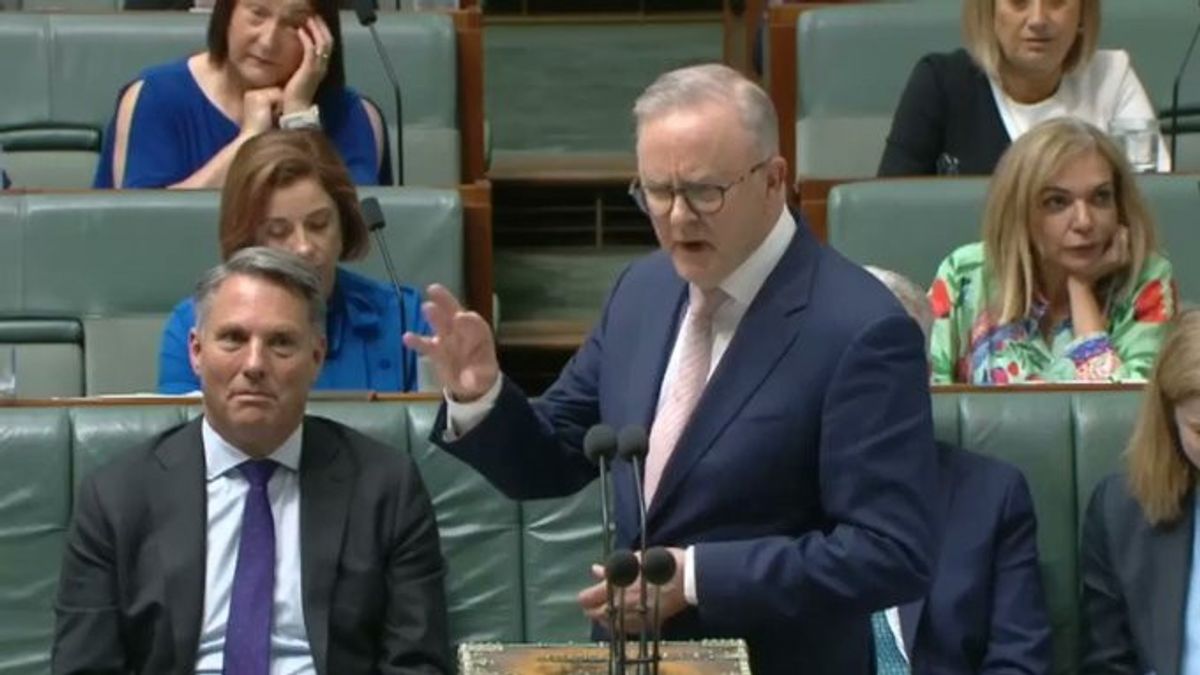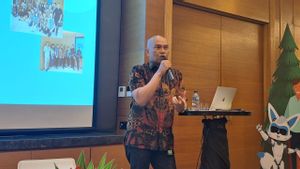JAKARTA The Australian government's plan to impose a ban on the use of social media by age raises concerns among experts about the potential impact on the social and mental welfare of teenagers. This is especially for vulnerable groups such as migrants and the LGBTQIA+ community.
Tereza Hussein, a 14-year-old teenager living in Darwin, is one of the teens worried about this policy. Hussein, who was born in the Democratic Republic of Congo and spent his childhood in a refugee camp in Malawi before moving to Australia at the age of nine. He relies on social media to stay connected to his grandmother, whom he has never met in person.
This is the only way I can connect with my grandmother, Hussein said. "If it's forbidden, it will really change my life because it will be difficult for me to talk to the people I left behind."
Hussein rarely posts on social media, but he often uses Instagram and Snapchat to view and discuss photos and videos from friends and his family. For teens like Hussein, this ban plan is considered a policy that fails to consider the importance of social media as a means of communication and social support for teens.
Experts say this ban could have a bad impact on teens from vulnerable communities. For migrant teens, LGBTQIA+, and other minority groups, social media is often the only way to gain emotional and social support.
About 97% of Australian teens use social media on various platforms, making them one of the most connected youth groups in the world. A survey by youth service ReachOut in 2024 shows that nearly two-thirds of parents of Australian teens are concerned about the use of their children's social media, especially linked to social media addiction.
The government plans to impose the ban as a step towards overcoming social media addiction and its negative impact on the physical and mental health of children and adolescents. However, the trial of age verification is the first step before the full ban is imposed, which is scheduled to be introduced in the form of legislation later this year.
However, youth advocates and mental health experts warn that this policy could cut off social ties that are important to vulnerable teens. Amelia Johns, a digital media professor at the University of Technology Sydney, said that this ban has the potential to have negative consequences on teens' mental health.
"This ban is very contrary to what we recommend," said Johns, who has researched the use of social media by migrants during the COVID-19 lockdown. Social media is an important part of the daily lives of many teens. For many of them, choosing to leave social media is not an option, and I am worried about the impact on mental health in the event of a full ban."
While no country has fully implemented age-based bans on internet platforms, some countries such as France and the UK have tested age verification systems. In the United States, some states have required age verification to access limited content, but there has been no comprehensive ban.
Teenagers like Ben Kioko, 14, from Sydney, who identify himself as part of the LGBTQIA+ and autistic communities, are worried about the impact of this ban. For Kioko, social media is a place to get support and talk to friends. He said that losing access to social media would make him feel more isolated and exacerbate the mental health problems he has experienced, such as anxiety and depression.
"If I lose social media, I will feel much more isolated," Kioko said. "I'm struggling with mental health problems such as anxiety and depression, and this can make it much worse and affect my life in the long term."
Australian Prime Minister Anthony Albanese supports this policy, stating that many parents want their children to spend less time in front of the scenes and more outside the home. Parents want their children off their phones and off the sports field, as well as me," Albanese said last September.
SEE ALSO:
However, some experts believe the policy is based on a nostalgic view of screenless childhood that is no longer relevant to today's digital world. Justine Humphry, a media researcher at the University of Sydney, said that while social media companies should better protect young users, a full ban is not a solution.
In addition, experts also note that various attempts to enforce age restrictions in other countries have largely failed due to the use of a VPN (Virtual Private Network) that can hide user locations and identities. According to a report compiled by former judge Robert French to support a ban plan in the state of South Australia, "there will definitely be a way out found by teenage users who understand technology."
An age verification experiment in France in 2022 found that nearly half of the country's youth could access VPNs to avoid age restrictions. Olivier Blaty, a computer scientist at Ecole Polytechnique Paris involved in the project, said access to VPN would be a major challenge in enforcing this policy.
For students like Enie Lam, 16 years old, the use of VPN is a way to access news sites blocked by schools. "I know overuse of social media is not a good thing, and I'm trying to reduce it," he said. "But the ban itself won't be effective."
The English, Chinese, Japanese, Arabic, and French versions are automatically generated by the AI. So there may still be inaccuracies in translating, please always see Indonesian as our main language. (system supported by DigitalSiber.id)


















